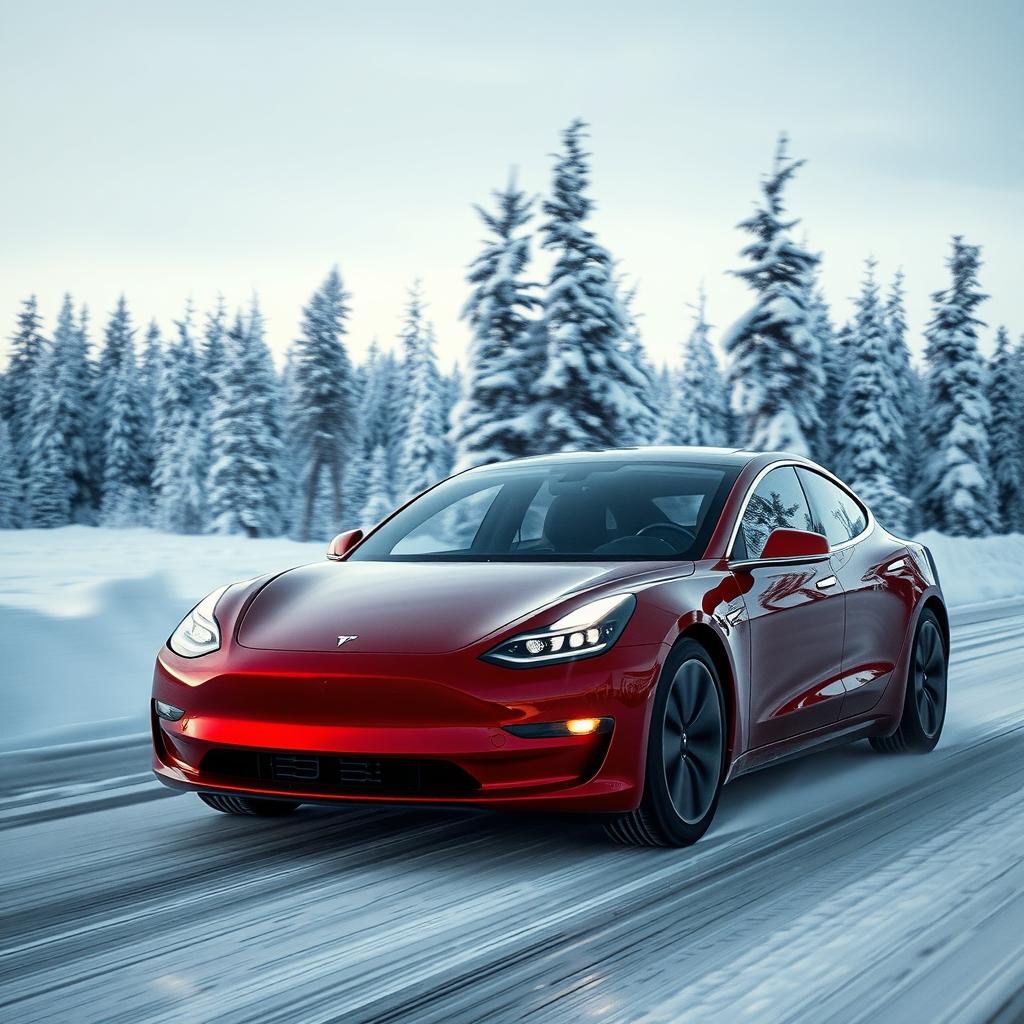Are Tesla Car Sales Declining?
Are Tesla car sales declining? That’s a hot topic among investors, EV enthusiasts, and potential buyers.
With increasing competition in the electric vehicle (EV) market, fluctuating prices, and changing government incentives, many are wondering if Tesla’s sales are dropping.
Let’s dive into the data and trends.
Are Tesla Car Sales Declining?
Yes, Tesla has seen some fluctuations in sales, but whether it’s a long-term decline is uncertain.
Several factors influence Tesla’s sales performance:
- Market competition – More automakers are entering the EV space.
- Economic conditions – Interest rates and inflation affect consumer spending.
- Pricing strategy – Frequent price cuts impact demand.
- Government incentives – Changes in tax credits influence EV adoption.
While Tesla has dominated the EV market for years, increasing competition and economic shifts may be impacting its growth.
What Do the Sales Numbers Say?
Tesla’s sales have fluctuated, but it remains the largest EV manufacturer globally.
Recent sales trends:
- Quarterly deliveries have varied, with some periods of slower growth.
- In certain markets, like China, Tesla faces stronger competition from brands like BYD.
- Sales of high-end models (Model S and Model X) have slowed compared to more affordable models.
- Frequent price adjustments impact buyer interest.
Despite some slowdowns, Tesla is still a major player in the EV market.
Why Are Tesla Sales Slowing Down?
Several reasons may explain Tesla’s recent sales fluctuations.
1. Increased EV Competition
More automakers are producing electric vehicles, increasing options for buyers.
Competitors affecting Tesla sales:
- BYD – China’s biggest EV maker is expanding globally.
- Ford & GM – Electric trucks and SUVs are gaining popularity.
- Rivian & Lucid – Offering premium EVs with unique features.
- Hyundai & Kia – Affordable EV options are drawing customers.
With more EVs available, some buyers are exploring alternatives to Tesla.
2. Tesla’s Pricing Strategy
Tesla has frequently adjusted prices, leading to buyer hesitation.
Recent price trends:
- Frequent price drops make buyers wait for further reductions.
- Some customers feel uncertain about resale values due to price fluctuations.
- Premium models have become less competitive compared to luxury EV alternatives.
While lower prices attract new buyers, they can also cause uncertainty in the market.
3. Expiring Government Incentives
Many Tesla buyers rely on EV tax credits and incentives to make purchases more affordable.
Factors affecting incentives:
- U.S. federal EV tax credits change frequently.
- Some state and country-specific incentives are being reduced.
- Competitors’ EVs may qualify for better incentives.
Fewer government incentives could lead to lower sales in some regions.
4. Economic Factors
Macroeconomic conditions impact Tesla’s sales.
Challenges facing the auto industry:
- High interest rates – Increases financing costs for buyers.
- Inflation – Makes big-ticket purchases less attractive.
- Market uncertainty – Some buyers delay purchases during economic slowdowns.
When the economy is uncertain, car sales—including Teslas—tend to decline.
Which Tesla Models Are Seeing the Biggest Decline?
Higher-end Tesla models are experiencing slower sales.
1. Tesla Model S & Model X
Sales of Tesla’s luxury models have slowed.
- High price points make them less attractive in a competitive market.
- Luxury EV competitors (Lucid, Porsche, Mercedes) offer premium alternatives.
- Frequent updates and redesigns may cause hesitation among buyers.
2. Tesla Model 3
Once Tesla’s best-selling model, the Model 3 now faces more competition.
- New, more affordable EVs from Hyundai, Ford, and Volkswagen are gaining traction.
- Some buyers are waiting for the refreshed Model 3.
- Price cuts have helped maintain demand, but long-term sales are uncertain.
3. Tesla Model Y
Despite being Tesla’s most popular model, the Model Y faces increasing competition.
- Rival SUVs like the Ford Mustang Mach-E and Hyundai Ioniq 5 are gaining market share.
- Price changes have led some buyers to wait before purchasing.
- Supply chain delays have impacted delivery times.
While the Model Y remains Tesla’s best-seller, competition is growing.
Is Tesla’s Market Share Shrinking?
Tesla’s overall market share remains strong, but competitors are closing the gap.
Market trends:
- Tesla still leads the EV industry in the U.S. and globally.
- More automakers are launching electric models, increasing competition.
- Tesla’s lead in EV charging infrastructure gives it an advantage.
- Future models like the Cybertruck may boost Tesla’s market share.
While Tesla isn’t losing its dominance yet, the EV market is becoming more competitive.
What’s Next for Tesla’s Sales?
Despite short-term slowdowns, Tesla has strong growth potential.
Factors that could drive future sales:
- New product launches – The Cybertruck and updated Model 3 could attract buyers.
- Battery advancements – Longer ranges and faster charging improve EV adoption.
- Expansion into new markets – Tesla continues to grow in Europe and Asia.
- More affordable models – A lower-cost Tesla could boost demand.
While Tesla faces challenges, it still has major opportunities for growth.
Final Verdict: Are Tesla Car Sales Declining?
Sales have fluctuated, but Tesla remains a dominant force in the EV market.
Key takeaways:
- Competition from other EV brands is increasing.
- Economic factors and interest rates affect consumer buying power.
- Frequent price adjustments create uncertainty.
- Tesla’s future growth depends on innovation and affordability.
While Tesla’s sales growth may be slowing, it’s still the leader in the electric vehicle market.
FAQs
Are Tesla car sales dropping?
Sales have fluctuated, but Tesla remains the top EV manufacturer globally.
Why are Tesla sales slowing down?
Increased competition, price fluctuations, and economic conditions contribute to sales slowdowns.
Which Tesla models are seeing the biggest decline?
Luxury models like the Model S and Model X have seen slower sales.
Is Tesla losing its market share?
Tesla still leads the EV market, but competitors are gaining ground.
Will Tesla sales increase in the future?
New models, battery improvements, and lower costs could drive future sales growth.
That wraps up the first half. Ready for the next 1000 words?

Will Tesla’s Price Cuts Help Increase Sales?
Tesla’s frequent price cuts have helped drive demand, but they also create uncertainty.
Effects of Tesla’s pricing strategy:
- Lower prices attract more buyers, especially for the Model 3 and Model Y.
- Some customers delay purchases, hoping for further discounts.
- Resale values of Teslas decrease due to unpredictable price drops.
While lower prices can temporarily boost sales, they may not be a sustainable long-term strategy.
Will the Cybertruck Help Boost Tesla’s Sales?
The Cybertruck is highly anticipated and could drive significant sales growth.
Reasons why the Cybertruck may boost Tesla’s market share:
- It targets the profitable truck market, competing with Ford’s F-150 Lightning and Rivian R1T.
- Over a million pre-orders indicate strong demand.
- It introduces new technology, such as an exoskeleton design and solar charging options.
If Tesla can deliver the Cybertruck at scale, it could help increase overall sales.
Is Tesla Expanding into New Markets?
Yes, Tesla is aggressively expanding into international markets.
Key markets Tesla is focusing on:
- China – Tesla’s Gigafactory in Shanghai plays a crucial role in global production.
- Europe – The Berlin Gigafactory helps Tesla meet European demand.
- India – Tesla has expressed interest in entering the Indian market.
International expansion helps Tesla sustain growth despite competition in the U.S.
Will Tesla Release a More Affordable Model?
Tesla has hinted at a future low-cost EV, which could significantly boost sales.
What we know about the potential budget Tesla:
- Expected to be priced around $25,000.
- Could compete with mass-market EVs from Hyundai, Ford, and Volkswagen.
- May be produced at a lower cost using Tesla’s next-generation battery technology.
If Tesla launches a budget-friendly EV, it could attract a broader customer base.
How Do Tesla’s Sales Compare to Other EV Brands?
Tesla still leads in EV sales, but competitors are closing the gap.
Comparison of 2024 EV market share:
- Tesla – Remains the top-selling EV brand worldwide.
- BYD – Rapidly expanding and challenging Tesla in China.
- Ford – Gaining traction with the Mustang Mach-E and F-150 Lightning.
- Hyundai/Kia – Increasing market share with affordable EV options.
While Tesla is still the market leader, other brands are catching up as the EV industry grows.
Will Tesla’s Sales Depend on Charging Infrastructure?
Yes, Tesla’s Supercharger network is a major advantage over competitors.
Why Tesla’s charging network helps sales:
- It has the largest and most reliable fast-charging network in the world.
- It allows Tesla owners to travel long distances with minimal range anxiety.
- Opening the Supercharger network to other EVs could generate additional revenue.
Tesla’s strong charging infrastructure helps maintain its dominance in the EV space.
Is Tesla Facing Any Production Challenges?
Supply chain disruptions and production bottlenecks have impacted Tesla’s sales.
Production challenges include:
- Shortages of critical materials like lithium for batteries.
- Delays in ramping up production at new Gigafactories.
- Logistics issues affecting vehicle deliveries.
If Tesla can resolve these challenges, production capacity will improve, potentially boosting sales.
Will Government Regulations Affect Tesla’s Sales?
Yes, Tesla’s success is partially tied to government policies on EVs.
How regulations impact Tesla:
- Tax credits and incentives encourage EV adoption.
- Emissions regulations push automakers toward electrification.
- Trade policies and tariffs affect Tesla’s global sales strategy.
While favorable policies help Tesla, changes in regulations could impact demand.
What’s Next for Tesla?
Despite some sales slowdowns, Tesla remains positioned for future growth.
Key factors that will determine Tesla’s success:
- New product launches – The Cybertruck and an affordable Tesla model could drive sales.
- Global expansion – Growth in Europe, China, and other markets will be crucial.
- Advancements in technology – Improvements in batteries, autonomy, and charging infrastructure.
- Competitive pricing – Tesla must balance affordability with profitability.
If Tesla continues to innovate, it will remain a leader in the EV industry.
Final Verdict: Are Tesla Car Sales Declining?
Tesla’s sales have slowed in some areas, but it is still a dominant EV manufacturer.
Key takeaways:
- Competition is increasing, but Tesla remains the market leader.
- Price adjustments attract buyers but create uncertainty.
- Economic conditions and government incentives impact demand.
- Upcoming models like the Cybertruck and an affordable Tesla could boost sales.
- Strong global expansion and charging infrastructure give Tesla an advantage.
While Tesla’s sales growth may be slowing, the company is still in a strong position for the future.
FAQs
Will Tesla’s price cuts increase sales?
Price cuts help attract buyers, but they can also create uncertainty in the market.
Can the Cybertruck help Tesla’s sales?
Yes, the Cybertruck has strong demand and could significantly boost Tesla’s revenue.
Is Tesla expanding into new markets?
Yes, Tesla is growing in China, Europe, and potentially India.
Will Tesla release a cheaper model?
Tesla has hinted at a $25,000 EV that could expand its customer base.
How does Tesla’s sales compare to other EV brands?
Tesla is still the top-selling EV brand, but competition from BYD, Ford, and Hyundai is growing.
Does Tesla’s charging network help its sales?
Yes, Tesla’s Supercharger network is a major advantage over competitors.
What are Tesla’s biggest production challenges?
Supply chain disruptions and production delays have impacted Tesla’s ability to meet demand.
How do government policies affect Tesla sales?
EV tax credits and emissions regulations play a big role in Tesla’s market success.
What will determine Tesla’s future sales?
New models, global expansion, battery advancements, and competitive pricing will be key factors.
Is Tesla still the market leader in EVs?
Yes, despite increased competition, Tesla remains the dominant player in the EV industry.
Overall, Tesla faces short-term challenges, but it remains one of the most influential and innovative car companies in the world.

